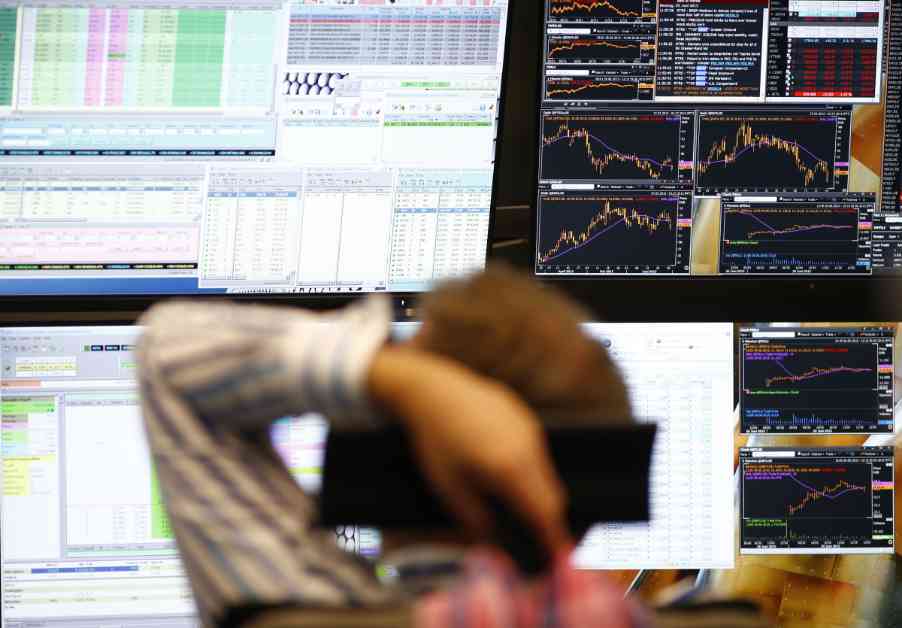AI Predictions and Top Stock Picks for 2025: Insights from Wall Street
Artificial Intelligence (AI) has been making waves across various industries, proving to be a lucrative investment for businesses worldwide. The recent surge in the US stock market, led by the “magnificent seven” stocks, has rewarded investors who placed their bets on the AI trend. As the momentum behind AI investments continues to grow, Wall Street is closely monitoring its impact on economies, the job market, and company financials. While some analysts view AI as a revolutionary force, others caution that the current hype may be inflating a stock-market bubble due to the overvaluation of AI giants. Let’s delve into what top Wall Street firms are predicting for the technology landscape in 2025.
AI Investment Will Continue To Speed Up
Developing AI technology comes with a hefty price tag, involving the establishment of data centers, deployment of high-end graphic processing units, and the training of AI models. Despite the significant costs involved, UBS has reported that leading tech firms such as Meta, Microsoft, Amazon, and Alphabet collectively allocated approximately £179.03 billion ($222 billion) towards AI projects in 2024, marking a 50% increase from the previous year. The investment bank foresees the AI market surpassing £806.44 billion ($1 trillion) by 2027, largely driven by investments in semiconductors, power systems, and data centers as AI models become more sophisticated. In light of this, UBS has recommended exposure to utilities through funds like the Utilities Select Sector SPDR Fund and the Fidelity MSCI Utilities Index ETF, as the demand for electricity from AI data centers continues to rise.
New AI Investment Opportunities Due To Broadening Use Cases
Throughout 2024, investors poured substantial funds into companies like Nvidia as part of the Phase 1 and Phase 2 trades, focusing on AI discovery and infrastructure development. However, Goldman Sachs believes that the AI revolution has progressed into Phase 3, where the focus shifts towards application and technology deployments through software and services, expanding the technology’s reach across various sectors. This transition is expected to gain momentum in 2025, creating new investment opportunities in Phase 3 companies looking to leverage AI to enhance revenue streams. During their recent earnings call, Goldman Sachs highlighted several stocks focusing on increasing AI-enabled revenue, including Cloudfare, Fortinet, Mastercard, Gartner, and CommVault Systems. Additionally, UBS hinted at the widespread adoption of generative AI in sectors such as cybersecurity, fintech, and healthcare in the near future.
US Companies Will Outperform Global Markets
AI has played a pivotal role in propelling US stocks ahead of the global market, with the substantial capital inflow into AI projects beginning to yield tangible results. Apollo Global Management attributes the US’s dominance in the AI sector to its abundance of data centers, surpassing that of other leading nations. According to Apollo’s chief economist, Torsten Sløk, the US is witnessing a surge in corporate and research spending catalyzed by the AI revolution, a trend not mirrored in developing nations or even China. The economist also credits the US economy’s resilience to the government’s investments in green energy projects alongside private sector commitments to AI. On a similar note, BlackRock remains optimistic about US stocks in 2025 compared to their international counterparts, citing the increasing energy demand from AI-powered data centers and the rapid evolution of AI infrastructure.
AI Could Cool-off Inflation
Both BlackRock and UBS are optimistic about AI’s potential to transform labor markets and bolster productivity, ultimately benefiting the overall US economy. The widespread adoption of AI products and services is expected to streamline business operations by automating routine tasks and fostering more efficient models. In their 2025 outlook, UBS emphasized that automation driven by AI could increase the supply of goods and services, potentially curbing inflation in the coming years. The investment bank believes that if AI’s capabilities are fully realized, it could usher in a productivity revolution, leading to lower prices for various goods and services and fueling economic growth rates.
As we navigate through the evolving landscape of AI investments and market projections, it’s crucial to approach financial decisions with caution and conduct thorough analysis or seek professional advice before investing. Remember, investments carry inherent risks, and past performance is not indicative of future returns. Stay informed, stay vigilant, and stay ahead in the ever-changing world of AI and finance.













